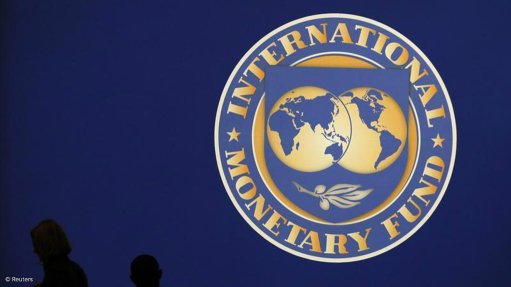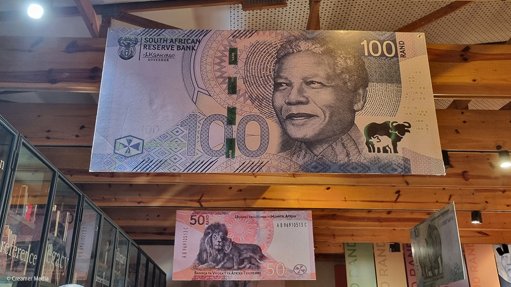African companies are realising financial value from decarbonisation investments – survey
Consultancy Boston Consulting Group (BCG) and sustainability management company CO2 AI has found in a survey that only 6% of large African companies currently comprehensively measure emissions, compared with 7% of global companies.
The companies report that just 10% of African companies have set emissions targets that cover scope 1, 2 and 3 emissions, compared with the 13% of global companies that have set these targets.
Encouragingly, however, African companies are ahead of the global average in tracking climate-related physical and transition risks. Fourteen per cent of African companies are comprehensively measuring climate-related physical and transition risks, compared with 12% of companies globally.
The companies predict that climate investment will rise, with companies planning to allocate a greater share of their capital expenditure (capex) to mitigation and adaptation over the next five years.
BCG says digital tools, internal carbon pricing and transition plans are among the respondents’ key enablers of climate resilience.
BCG and CO2 AI garnered responses from 1 924 executives responsible for emissions measurement, reporting and reduction in their organisation. The companies surveyed account for 40% of global greenhouse-gas emissions.
“African companies are broadly aligned with global peers in terms of emissions transparency, but fewer have set explicit targets to reduce those emissions.
“This suggests that while disclosure may be driven by external requirements from other jurisdictions or customers, there is comparatively less emphasis on decarbonisation relative to the rest of the world,” BCG explains.
Measurement of climate-related risk is also limited, with only 12% of global firms assessing all types of physical and transition risks. African companies, at 14%, are above the survey average in terms of identifying and measuring both physical and transition climate risks and second regionally, after Asia-Pacific at 16%.
African countries are the most likely to assess climate risks – especially physical climate risks – since the continent is expected to be disproportionately impacted by climate change. This impact is already evident through increased instances of flooding and drought, BCG states.
In fact, the survey finds that Asia-Pacific, the Middle East and Africa saw the highest increase in climate loss normalised as a percentage of revenue with average climate-related loss in Africa increasing by 0.2% from 1.9% in 2023 to 2.1% in 2024.
There is a strong local awareness that climate change poses significant risks to business operations and many companies are already experiencing its effects.
As a result, businesses in the region are taking a more proactive approach to comprehensively identifying and measuring these risks, placing them ahead of other regions.
Over the next five years, companies globally plan to increase their investments in mitigation, adaptation and resilience by dedicating an additional 16% of their capex budget to sustainability, which amounts to an increase of about $69-million per company.
This helps mitigate climate risk for these companies, for example weather-proofing assets, while also enabling avenues for green growth through sustainable product lines.
BCG points out that Africa leads in adaptation and resilience investment with companies planning to increase their investments by an additional 18% of their capex budget over the next five years.
Companies in the region are experiencing climate risks first-hand and, as a result, are placing greater emphasis on preparation measures such as addressing water scarcity and weather-proofing buildings.
“Around 70% of companies are maintaining, if not increasing, their investments in sustainability. This is encouraging as it shows that climate action hasn’t stalled, and momentum continues steadily around the world,” says BCG climate and sustainability leader Hubertus Meinecke.
BCG senior partner Hamid Maher adds that African businesses are leading by example, with 14% comprehensively measuring climate risks – which is well above the global average.
“This is a testament to the continent’s commitment to resilience and forward-thinking leadership, both of which are vital as Africa faces disproportionate climate impacts yet also shows remarkable resourcefulness.”
CAPTURING BENEFITS
According to the report, 82% of the global companies surveyed say they have captured economic benefits from decarbonisation, with 6% reporting a net value that exceeds 10% of yearly revenue – which averages $221-million per company.
These benefits are largely driven by revenue growth from sustainable products and operational savings from efficiency gains and resource optimisation.
Africa leads in capturing significant benefits from decarbonisation, with 11% of African companies compared with the global average 6% of companies deriving value from these investments.
“Investments in climate action are yielding tangible benefits, strengthening their position as reliable suppliers and generating greater value for their businesses,” BCG says.
Among global firms that assess both physical risks such as storms and rising seas, and transition risks including policy and market shifts, the average projected financial exposure by 2030 is $790-million.
Nearly half of the companies report that their climate risk adaptation efforts generate a return on investment of more than 10%, which demonstrates that proactive preparation delivers real and measurable value.
“What matters most is that investment and action are accelerating, and our survey shows that companies are investing in climate action where there is a business case around strategic risk management and compelling financial returns,” says BCG partner Diana Dimitrova.
She adds that it is encouraging to see African companies increasing their sustainability investments and leading globally in realising financial value from decarbonisation and adaptation.
“With 11% of firms reporting significant returns from climate action, the continent is proving that business growth and climate leadership can go hand in hand. By embracing digital tools and prioritising adaptation, African businesses are developing a blueprint for climate resilience and sustainable value creation,” BCG concludes.
Article Enquiry
Email Article
Save Article
Feedback
To advertise email advertising@creamermedia.co.za or click here
Press Office
Announcements
What's On
Subscribe to improve your user experience...
Option 1 (equivalent of R125 a month):
Receive a weekly copy of Creamer Media's Engineering News & Mining Weekly magazine
(print copy for those in South Africa and e-magazine for those outside of South Africa)
Receive daily email newsletters
Access to full search results
Access archive of magazine back copies
Access to Projects in Progress
Access to ONE Research Report of your choice in PDF format
Option 2 (equivalent of R375 a month):
All benefits from Option 1
PLUS
Access to Creamer Media's Research Channel Africa for ALL Research Reports, in PDF format, on various industrial and mining sectors
including Electricity; Water; Energy Transition; Hydrogen; Roads, Rail and Ports; Coal; Gold; Platinum; Battery Metals; etc.
Already a subscriber?
Forgotten your password?
Receive weekly copy of Creamer Media's Engineering News & Mining Weekly magazine (print copy for those in South Africa and e-magazine for those outside of South Africa)
➕
Recieve daily email newsletters
➕
Access to full search results
➕
Access archive of magazine back copies
➕
Access to Projects in Progress
➕
Access to ONE Research Report of your choice in PDF format
RESEARCH CHANNEL AFRICA
R4500 (equivalent of R375 a month)
SUBSCRIBEAll benefits from Option 1
➕
Access to Creamer Media's Research Channel Africa for ALL Research Reports on various industrial and mining sectors, in PDF format, including on:
Electricity
➕
Water
➕
Energy Transition
➕
Hydrogen
➕
Roads, Rail and Ports
➕
Coal
➕
Gold
➕
Platinum
➕
Battery Metals
➕
etc.
Receive all benefits from Option 1 or Option 2 delivered to numerous people at your company
➕
Multiple User names and Passwords for simultaneous log-ins
➕
Intranet integration access to all in your organisation





















